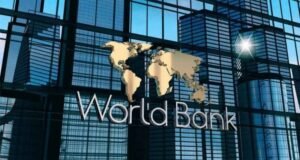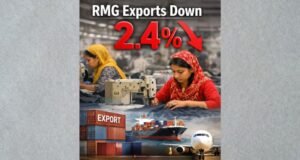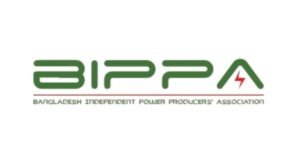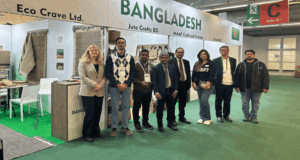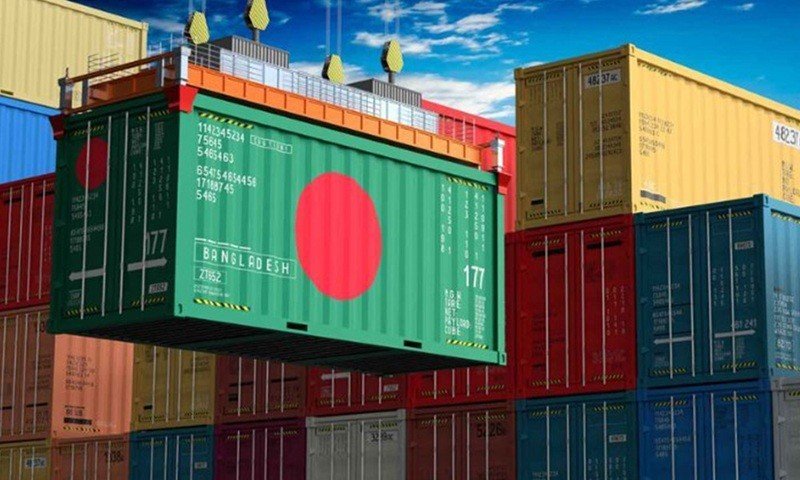
Bangladesh’s export to the European Union faces an enormous challenge from the newly adopted legally binding EU requirement to ensure safety across the supply chain, protecting the environment and human rights.
Bangladesh’s main export item to the EU is ready-made garments, which accounted for 60 per cent of $42 billion RMG exports last year.
Under the new requirement adopted by the European Parliament and the Council last year, Bangladesh will have to identify actual and potential risks and harm to human rights and the environment at all levels of its supply chain and address them, said Md Awrangajeb Akon, who teaches criminology and police science at Mawlana Bhashani Science and Technology University.
Safety standards will have to be institutionalised by 2029, or Bangladesh risks losing the market, with the potential of its businesses facing fines or reduced orders for work.
The newly introduced directive is known as the Corporate Sustainability Due Diligence Directive (CSDDD), a legal directive to implement the Human Rights and Environmental Due Diligence (HREDD), a concept that evolved through a series of international standards and soft-law instruments in the 2010s.
The CSDDD explicitly requires companies to have a climate transition plan, pushing Bangladeshi exporters to reduce their carbon footprint and adopt renewable energy sources, explained Syed Sultan Uddin Ahmmed, executive director of the Bangladesh Institute of Labour Studies.
He observed that Bangladesh particularly made some progress with regard to workers’ safety and labor rights in recent years, but many challenges remained.
Bangladesh needs to make many changes to its law and existing practices, he added, particularly in line with the International Labor Organisation requirements.
Some of the factories in the RMG sector have already received accolades for their green transition efforts. But they are not enough, given the scale of fossil fuel dependence Bangladesh has, with more than 90 per cent of its energy demand met through burning fossil fuels.
In the 15 years from 2009, Bangladesh’s energy investments and policies targeted a development almost entirely relying on fossil fuels – mainly gas, coal, and oil. Bangladesh is at the moment locked into large-scale fossil fuel use for at least the next two decades.
Energy transition initiatives are still not enough and the current energy mix is unlikely to undergo any substantial change anytime soon, with a discriminatory financing regime blocking renewable energy expansion.
Despite factories, particularly those in the RMG, setting up many solar power stations to power their operations, their supply chain is riddled with a carbon footprint.
“The new law looks like a double-edged sword to Bangladesh,” said Md. Motaher Hossain, team leader of the Factory Improvement Program for the EU Market Access Project at the GIZ.
Besides formulating stringent new standards and laws, removing human rights risks across the supply chain also means implementing labor rights at all stages while ensuring fair wages and decent workplaces, he said.
Companies that fail to comply with it could face severe penalties, Motaher said, including fines and civil liability for their actions or inaction.
“This is a major departure from the previous ‘soft law’ approach, which relied on voluntary corporate social responsibility initiatives,” he added.
The new EU directive will also require its buyers to pay fair prices to source countries and respect human rights.
By embracing the requirement, Bangladesh could enhance its business with the EU, experts said.
“The cost of business is going to go up with the buyers paying more,” said Mohammad Hatem, an executive president of the Bangladesh Knitwear Manufacturers and Exporters Association.
The reason for the EU and other Western companies choosing Bangladesh for an RMG manufacturing destination is purely rooted in the abundance of the country’s cheap labor supply.
Still faces substantial protests at factories where workers do not get their legitimate payment. Workers often get fatally shot by law enforcers for raising their voices over fundamental rights being missing.
Bangladesh’s business leaders have urged EU buyers to pay fair and ethical prices to enable fast implementation of the CSDDD.
 Weekly Bangla Mirror | Bangla Mirror, Bangladeshi news in UK, bangla mirror news
Weekly Bangla Mirror | Bangla Mirror, Bangladeshi news in UK, bangla mirror news


